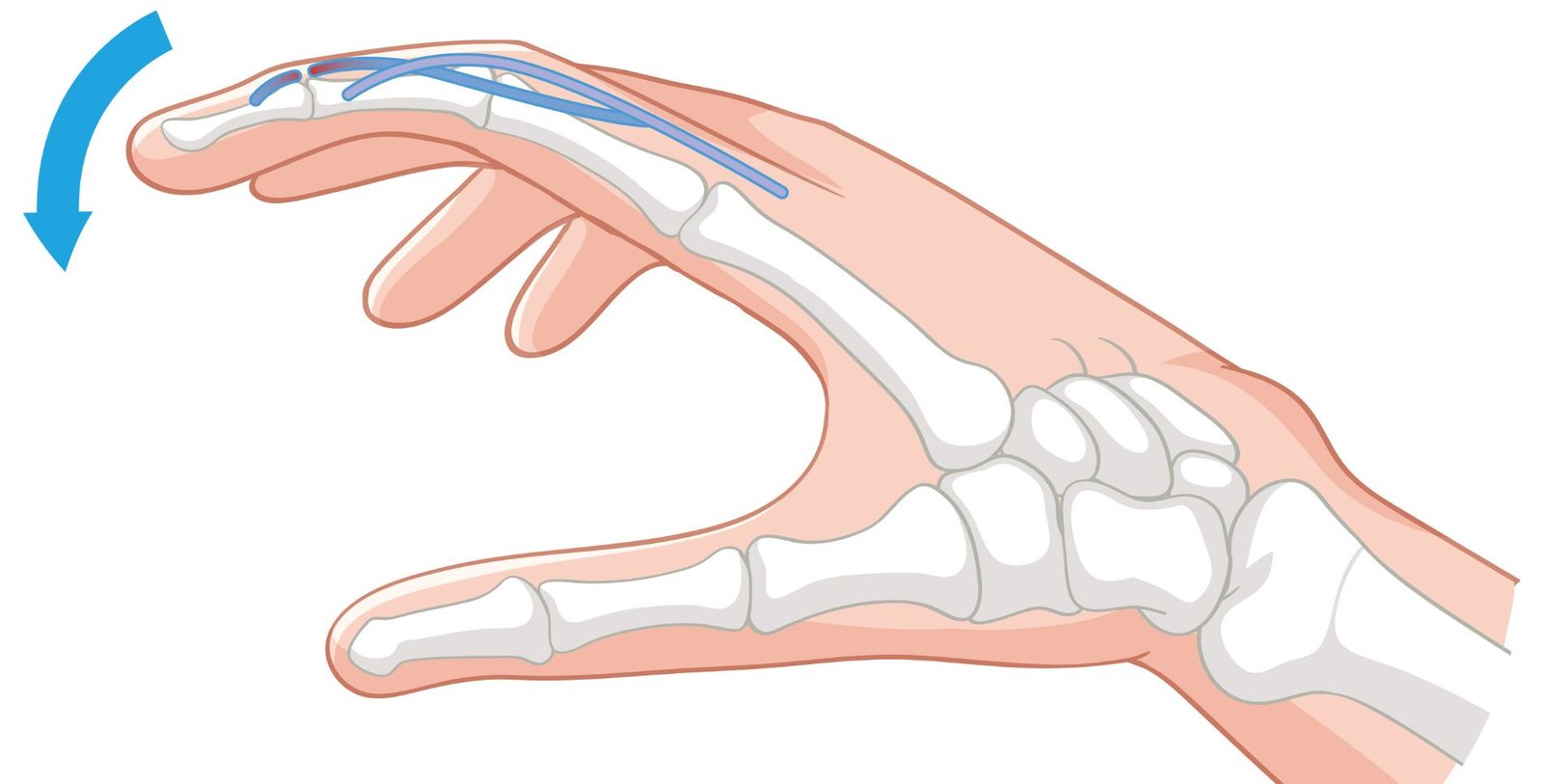Our hands are essential for daily tasks and activities, but they are also highly susceptible to injuries and conditions that can affect their function and cause pain. Hand surgery is a specialized field of medicine that focuses on diagnosing and treating a wide range of conditions that impact the hand, wrist, and fingers. Whether it’s due to trauma, overuse, or congenital issues, hand surgery can help restore mobility, relieve pain, and improve the quality of life for patients. Turkey has become a popular destination for hand surgery, offering experienced surgeons, modern healthcare facilities, and affordable hand surgery costs. At Uncalı Hospital in Antalya, we provide comprehensive care for various hand surgery types, including procedures for carpal tunnel syndrome, tendon injuries, and trigger finger.
What is Hand Surgery?
Hand surgery is a broad term that encompasses a range of surgical procedures designed to address injuries, deformities, and diseases affecting the hands. These procedures can involve the bones, tendons, ligaments, nerves, and soft tissues of the hand. Common conditions treated with hand surgery include carpal tunnel syndrome, tendon injuries, fractures, arthritis, trigger finger, and nerve compression.
The goal of hand surgery is to restore the hand’s functionality, relieve pain, and improve the patient’s ability to perform everyday tasks. Some hand surgeries are minor and can be performed on an outpatient basis, while others may require more complex interventions.
Who is Hand Surgery Suitable For?
Hand surgery is suitable for individuals who experience the following conditions:
- Carpal Tunnel Syndrome: A condition caused by compression of the median nerve as it passes through the carpal tunnel in the wrist. Symptoms include numbness, tingling, and weakness in the hand and fingers. Surgery may be necessary when non-surgical treatments like splints or corticosteroid injections fail to provide relief.
- Tendon Injuries: Tendon injuries, such as cuts or ruptures, can significantly impair hand function. Surgical repair is often needed to reconnect the tendons and restore movement.
- Trigger Finger (Stenosing Tenosynovitis): Trigger finger is a condition where one or more fingers become stuck in a bent position due to inflammation of the tendons. Surgery may be required to release the tendon and allow normal finger movement.
- Fractures and Dislocations: Broken bones or dislocated joints in the hand may require surgical intervention to realign the bones and stabilize the joint.
- Arthritis: Arthritis can cause pain, swelling, and deformity in the joints of the hand. In severe cases, surgery may be needed to remove damaged tissue, fuse joints, or replace joints to reduce pain and improve function.
- Nerve Compression: Nerve compression, such as ulnar nerve entrapment or radial nerve injury, can lead to weakness, numbness, and loss of sensation in the hand. Surgery may be necessary to decompress the affected nerve.
Before recommending surgery, our surgeons at Uncalı Hospital will conduct a thorough evaluation, including physical exams, imaging studies (X-rays or MRIs), and a review of the patient’s symptoms and medical history.

Types of Hand Surgery
There are various types of hand surgery that can be performed, depending on the specific condition and the severity of the issue. Common hand surgeries include:
- Carpal Tunnel Release Surgery: This surgery is used to treat carpal tunnel syndrome, which occurs when the median nerve is compressed as it passes through the wrist. The procedure involves cutting the ligament that forms the roof of the carpal tunnel to relieve pressure on the nerve. Carpal tunnel release surgery is often performed as an outpatient procedure under local anesthesia, and most patients experience significant relief from symptoms.
- Tendon Repair Surgery: Tendon injuries can occur due to trauma or overuse, leading to limited hand movement and pain. Tendon repair surgery involves stitching the torn tendon back together or grafting healthy tissue to reconnect the tendon. This surgery is common for injuries involving flexor tendons (which bend the fingers) and extensor tendons (which straighten the fingers).
- Trigger Finger Release Surgery: Trigger finger occurs when the tendons in the finger become inflamed and cause the finger to lock in a bent position. Surgery involves making a small incision in the palm to release the tendon sheath, allowing the finger to move freely again. This procedure is typically quick and can be done under local anesthesia.
- Joint Replacement Surgery: For patients with severe arthritis in the hand, joint replacement surgery may be performed to replace damaged joints with artificial implants. This surgery helps reduce pain and restore movement in affected fingers or the wrist.
- Fracture Repair Surgery: When a bone in the hand is fractured, surgery may be required to realign the bone and stabilize it with pins, screws, or plates. This procedure is especially important for complex fractures where non-surgical treatment would not provide adequate healing.
- Nerve Decompression Surgery: Nerve compression in the hand or wrist can lead to loss of sensation and movement. Surgery aims to release the pressure on the affected nerve by removing any tissue or structures causing the compression.
How is Hand Surgery Performed?
The method used for hand surgery depends on the type of procedure required, but most surgeries follow a similar process:
1. Pre-Surgery Consultation:
The patient will have a thorough consultation with the surgeon, who will evaluate the condition and discuss treatment options. Imaging tests such as X-rays or MRI scans may be conducted to provide a detailed view of the hand’s internal structures.
2. Anesthesia:
Most hand surgeries are performed under local or regional anesthesia, which numbs the hand and arm while the patient remains awake. In some cases, general anesthesia may be used, particularly for more complex procedures.
3. Surgical Procedure:
Depending on the type of surgery, the surgeon will make one or more small incisions in the hand to access the affected structures. The surgeon will then repair or remove damaged tissue, nerves, tendons, or bones using specialized instruments.
4. Closing the Incision:
Once the surgery is complete, the incisions are closed with stitches or steri-strips. A bandage or splint may be applied to protect the hand during the healing process.
The duration of the surgery depends on the complexity of the procedure but typically ranges from 30 minutes to 2 hours.
Pre-Surgery Preparations
Before undergoing hand surgery, patients need to follow specific pre-surgery guidelines to ensure a smooth procedure:
- Medical Evaluation: A thorough medical evaluation, including blood tests and imaging, is conducted to assess the patient’s health and confirm the condition of the hand.
- Medication Adjustments: Patients may need to stop taking certain medications, such as blood thinners, in the days leading up to surgery to reduce the risk of bleeding.
- Fasting: If general anesthesia is being used, patients may be instructed to fast (no food or drink) for several hours before the surgery.
Our team at Uncalı Hospital will provide personalized pre-operative instructions to help patients prepare for their surgery and ensure optimal outcomes.
Post-Surgery Care and Recovery
Recovery from hand surgery varies depending on the procedure but generally involves physical therapy and rest to regain strength and function. Here’s what to expect during recovery:
- Immediate Aftercare: After the surgery, the hand will be bandaged, and the patient may be advised to keep the hand elevated to reduce swelling. Pain medication will be prescribed to manage any discomfort.
- Physical Therapy: Physical therapy is crucial for regaining strength, flexibility, and range of motion in the hand. Most patients will need several weeks or months of therapy to fully recover from surgery.
- Follow-Up Appointments: Patients will need to attend follow-up appointments with the surgeon to monitor the healing process and ensure the hand is recovering as expected.
- Full Recovery: Recovery times vary, but most patients can return to light activities within 4 to 6 weeks, with full recovery taking several months. Complex procedures, such as tendon repairs, may require longer rehabilitation.
Hand Surgery Cost in Turkey
The cost of hand surgery in Turkey is significantly lower than in many Western countries, making it an affordable option for international patients. Hand surgery costs depend on factors such as the type of surgery, the complexity of the procedure, and the hospital’s location.
On average, patients can expect to pay between $2,000 and $5,000 for hand surgery in Turkey, which is considerably more affordable than in countries like the United States or the UK. At Uncalı Hospital, we offer competitive pricing and all-inclusive packages that cover the surgeon’s fees, hospital stay, anesthesia, and post-surgery care.
Why Choose Uncalı Hospital for Hand Surgery in Turkey?
Uncalı Hospital in Antalya is a leading provider of hand surgery in Turkey, offering expert care, modern facilities, and personalized treatment plans. Our team of experienced surgeons is dedicated to helping patients restore hand function and relieve pain through advanced surgical techniques. We use the latest technology and minimally invasive methods to ensure the best possible outcomes with minimal downtime.
Take the First Step Toward Hand Function Restoration
If you’re considering hand surgery in Turkey, Uncalı Hospital offers world-class care and affordable pricing. Our team is here to help you regain mobility and improve your quality of life through expert hand surgery solutions. Contact us today to schedule your consultation and start your journey toward a pain-free, functional hand.
Our Doctors
4.8/5 Average Rate

I had my stomach surgery on Thursday. I would like to thank my doctor Murat Kağan Bilgeye very much. I would also like to thank all the friendly nurses and cleaning ladies separately. Our dietician Ms. Özlem and Ms. Büşra, you are good to be there, with love, Nilüfer U.
Sandra Polat
Google Reviews
I brought my mother from 600 km for Cengiz teacher and his team, I am glad that you brought her, she turned her years of indecision and fears into confidence in an instant, she had two knee prosthesis surgeries. Thank you very much to Cengiz teacher for his tolerance, Sabri and professionalism.
Irmak Sav
Google Reviews
I had stomach surgery at the private uncalı meydan hospital to Murat Kaan Bilge. I would like to thank my doctor and his team, who did not lack his support from the beginning to the end of the surgery, and then all the nurse friends who came to check on me every hour and took all my trouble, and the housekeeper sisters who made our room sparkling every day🌸
Feyza Nur
Google Reviews
Dr cengiz yılmaz performed hip replacement surgery the next day I was able to stand up the next day, the interest is at the highest level, 24 hour nurses are following up, people feel safe, the hospital rooms are clean and spacious, thank you to Mr. Cengiz.
Ugur Eper
Google Reviews
We would like to thank our ophthalmologist Mr. Süleyman Karaman for his friendliness and interest. Our operation process was very comfortable with his support before and after the operation. We wish you continued success.
Tolgahan Peker
Google ReviewsFrequently Asked Questions
Yes, hand surgery in Turkey is safe, especially when performed at accredited hospitals like Uncalı Hospital. Turkey has highly experienced surgeons and advanced healthcare facilities that follow international standards for patient safety.
Recovery from hand surgery typically takes about 4 to 6 weeks for light activities, but full recovery may take several months, depending on the type of procedure. Physical therapy is often needed to regain strength and mobility in the hand.
Common hand conditions treated with surgery in Turkey include carpal tunnel syndrome, tendon injuries, fractures, arthritis, and trigger finger. Each surgery is tailored to address the specific needs of the patient to restore function and relieve pain.
Before undergoing hand surgery in Turkey, patients may need to stop taking certain medications, such as blood thinners, and follow fasting instructions if general anesthesia is used. Your surgeon will provide personalized guidelines, including any necessary pre-surgery tests like blood work or imaging.

Book an appointment now!
You can contact us at any time if you have any questions/concerns.





